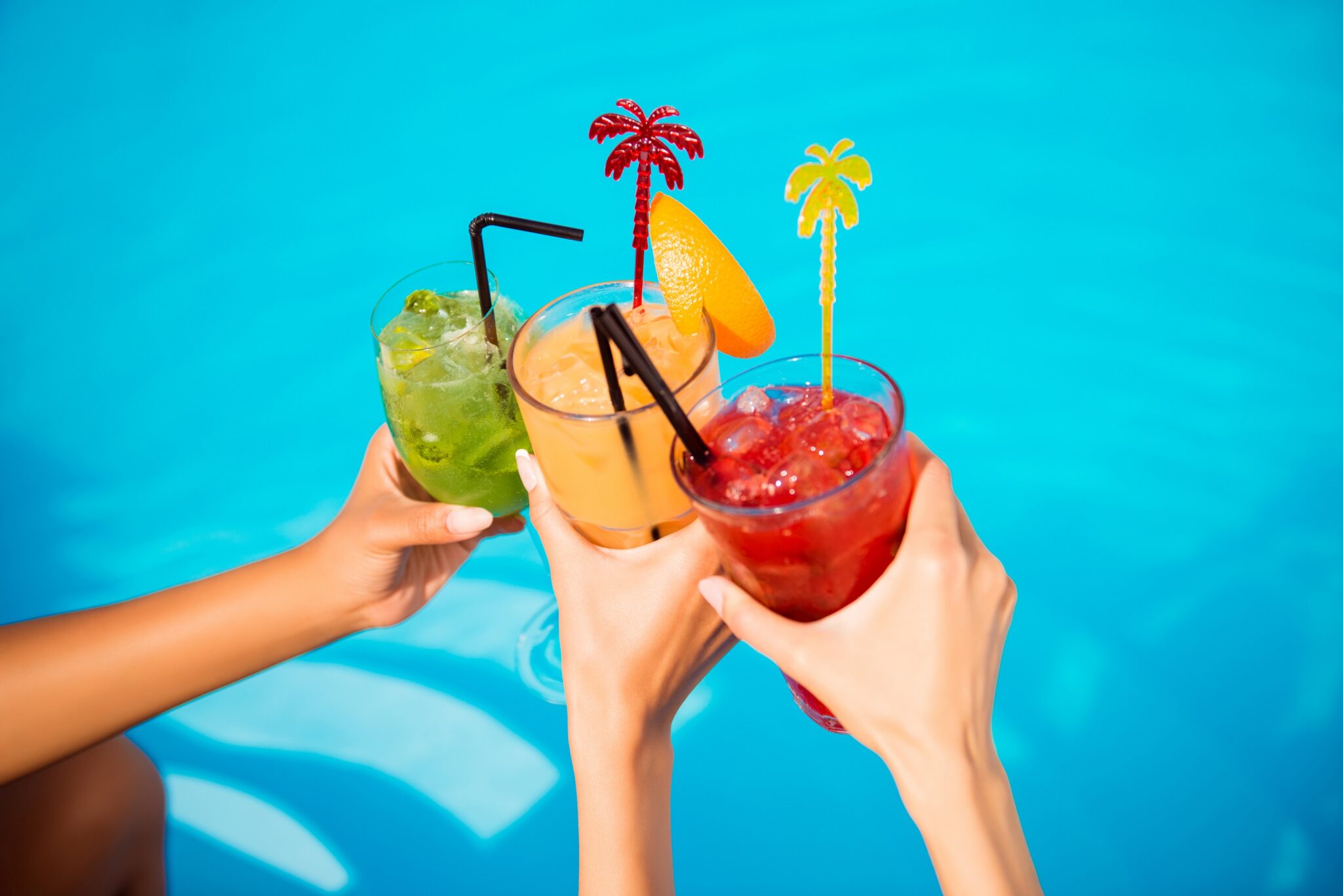
The “Dry January” is over! If you have enjoyed the experience of a life never diluted by a single drop of alcohol, know that you can extend it over the holidays. Stepping away from the intoxicating substance even when it’s time to board can get trendy with the “sober curious” move. decryption.
A drink after take off to celebrate the start of the holiday. A cocktail by the beach to enjoy the good taste of tranquility with a sea view, an aperitif to start the dinner and a glass of wine with the meal. The smartphone is not the only travel companion. It must be admitted that alcohol is also often part of the escape.
In a context of declining alcohol consumption – a Frenchman drank an average of 200 liters of alcohol per year in 1960 against 80 liters in 2018 according to INSEE, the hangover is no longer on the holiday program. This emerging trend, in line with the spirit of the British “Dry January” campaign (consisting of drinking less alcohol for a month), offers to get rid of alcohol addiction when you go on holiday.
Last year the Lonely Planet guide already devoted a topic to this trend, which could well lead the way given the success of “Dry January”. The explosion of a new offering of non-alcoholic drinks can only help vacationers choose a mocktail (non-alcoholic cocktail) instead of a poolside margarita.
Bars all over the world have alcohol off the menu, from the state of Colorado in the United States to Paris. In the City of Light, the Drinks & Co concept bar pays as much attention to its non-alcoholic cocktail range as it does to its traditional alcoholic drinks. According to the reference of Time Out outlets, the non alcoholic version of negroni is: “made with a distillate of spices instead of gin, a bitter and a vermouth without alcohol”. And the magic happens: “Miracle, the result is very close to its staggering counterpart! » writes the media.
Unlike “binge drinking,” new forms of partying have taken precedence over those where getting drunk — even to an alcoholic coma — was popular with teens. In 2014, sober parties were organized in Sweden. In Berlin, the Sober Sensation collective has specialized in organizing alcohol- and drug-free parties. Events will soon be planned across Europe, from the UK to Poland. Other networks that integrate more of a well-being dimension, often with morning sports routines, such as Daybreaker in the United States or Morning Gloryville in London, are all ideas for partying on holiday, without being accompanied by a glass of alcohol.
Travel agents even offer guaranteed stays without alcohol. In the United States, the company Sober Vacations International built the concept in 1987. A pioneering company, first launched to support travelers who had fallen into the excesses of alcohol and wanted to go on vacation without having to fight against the myriad temptations. Stays are organized in places with a lot of tourists where the alcohol often flows freely, such as the Riviera Maya in Mexico.
In line with wellness stay offerings where yoga and massages are the main activities, the hotel industry should also offer more cards with non-alcoholic drinks, whether lightly dosed or not, according to the giant IHG Hotels & Resorts. In Scotland, the owner of a hotel in the Orkney Islands went even further by banning all alcohol in his bar (but customers are allowed to bring their own bottles).
“Sober curious”, quesaco?
These new initiatives are part of a broad movement powered by Ruby Warrington’s book entitled “Sober Curious”, published in 2018. The British author is deciphering our relationship with alcohol, offering her readers to drink more consciously to discover the real world. determine moments that lend themselves to this type of consumption. Warrington topped it all up in December 2020, a few months after a string of incarcerations that saw aperitifs abound, by releasing a guide to changing the way we drink in a hundred days (“The Sober Curious Reset”). It is in fact a matter of deviating from the binary choice that has been proposed until now: “Do you drink or do you want water? “.
When it comes time to toast, it has long been more socially acceptable to have a glass of wine or a pint of beer. How many of us have ever felt ashamed to say no to a drink of alcohol? And how many people have already refused to “squeeze” an orange juice drinker?
ETX Daily Up